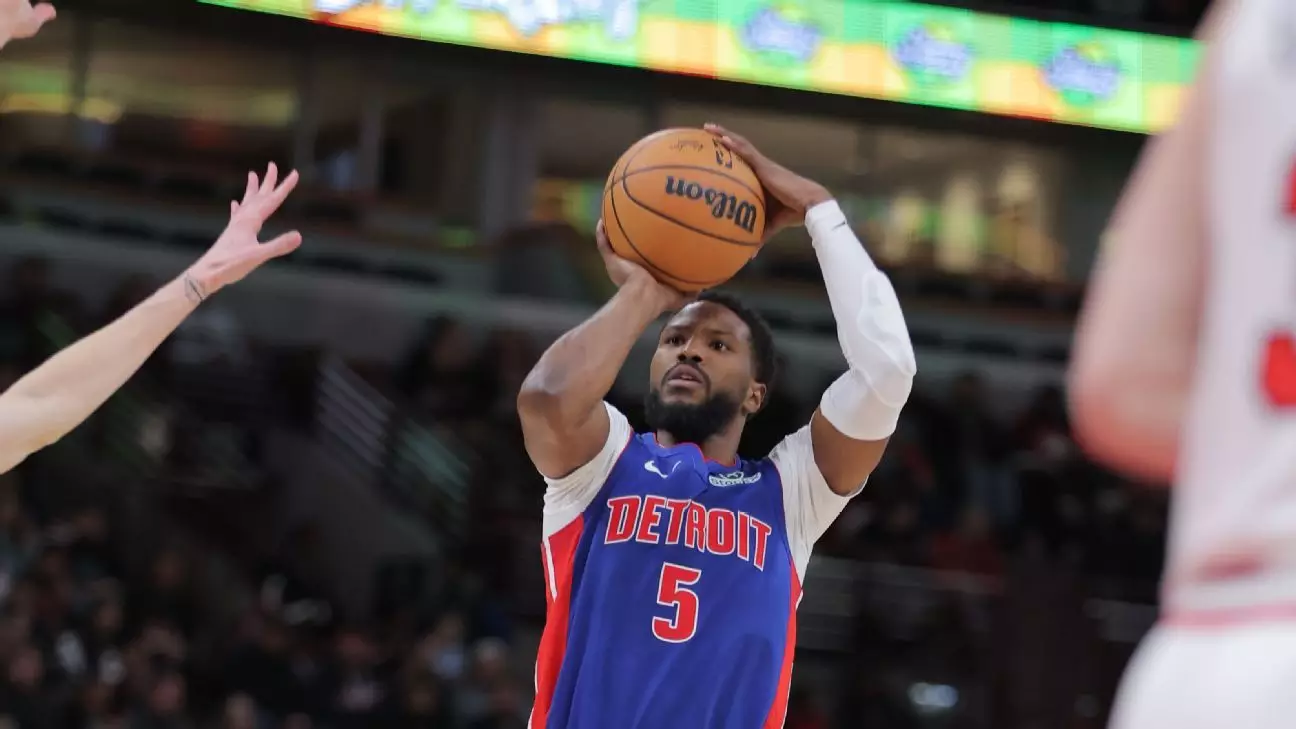Federal investigators have recently turned their attention to Malik Beasley, Detroit Pistons guard, amid serious allegations linking him to gambling activities involving NBA games and prop bets. This federal probe signals yet another jarring episode that highlights the fragile boundaries between sportsmanship and illicit betting, a struggle that the NBA continues to grapple with. What is particularly disheartening about Beasley’s case is how it threatens to tarnish the reputation he has painstakingly built over nearly a decade in the league. Averaging over 11 points per game while with the Milwaukee Bucks and setting records with the Pistons, Beasley’s career trajectory had been on a solid incline—until now.
The Alarming Role of Sportsbooks and Suspicious Betting Patterns
Central to the investigation are suspicious betting activities noticed by at least one major U.S. sportsbook, which reported unusually heavy action on Beasley’s game statistics starting early 2024. The apex of these irregularities came during a Bucks vs. Trail Blazers game in January, where the odds for Beasley’s rebound stats shifted drastically. Oddly enough, the surge in bets favored the “under” on his rebounds, yet Beasley exceeded expectations by gathering six boards. The bets, deemed out of the ordinary by betting regulators, ultimately lost, but the questionable pattern sparked a broader inquiry, illuminating the increasingly complex entanglement of professional athletes with high-stakes gambling markets.
The Growing NBA Dilemma: Protecting Integrity Amid Rising Betting Culture
This investigation thrusts the NBA into a familiar yet precarious position. While the league cooperates with prosecutors, it faces an unenviable challenge: safeguarding the integrity of its games in an era when legalized sports betting is booming nationwide. Beasley is not the first NBA player to come under scrutiny—precedents like Jontay Porter’s ban for leaking sensitive information to gamblers and Terry Rozier’s ongoing federal probe underscore systemic vulnerabilities. The NBA’s proactive but often reactive approach to gambling-related controversies suggests an urgent need for stronger preventive measures, educational programs, and arguably a cultural shift within professional basketball to curb temptations tied to lucrative betting.
Malik Beasley: A Player Battle-Scarred by Off-Court Troubles
It is impossible to consider these allegations without remembering Beasley’s troubled history, which includes a 2020 guilty plea to a felony charge related to threats of violence. His subsequent jail time and NBA suspension added layers of complexity to his narrative, reinforcing a pattern of off-court instability shadowing his on-court contributions. While contracting him to a lucrative $42 million deal, the Pistons likely saw potential redemption and valuable sharpshooting skills. However, the ongoing investigation has stalled these talks, revealing how past indiscretions and current accusations can swiftly alter an athlete’s value and standing.
The Larger Social Context: Balancing Athlete Rights with Accountability
Beasley’s attorney rightly reminds us that an investigation does not equate to guilt, emphasizing the constitutional presumption of innocence. Yet, the NBA, fans, and the broader public must reckon with a more uncomfortable reality: professional athletes, as both role models and public figures, grapple with immense pressures and temptations, including gambling. Addressing this dilemma demands empathy coupled with accountability. The league should foster a more transparent dialogue around mental health, financial literacy, and ethical conduct to prevent such incidents, rather than merely punishing players after scandals erupt. Without a comprehensive strategy, these gambling controversies will likely continue to undermine the NBA’s credibility and the sport’s integrity.
Why This Case Matters Beyond the Court
In a sport beloved by millions, ramifications of gambling probes extend well beyond individual reputations. They shake fan trust and invite cynical speculation about the legitimacy of outcomes. For an organization promoting itself as a global entertainment giant, public confidence is paramount. Malik Beasley’s predicament exemplifies the perilous crossroads where lucrative gambling markets converge with the personal vulnerabilities of athletes. As this investigation unfolds, it compels both the NBA and society to confront uncomfortable questions: how much risk is too much when pursuing profit? And how do we protect athletes caught between the spotlight and the shadows cast by modern sports betting?


Leave a Reply